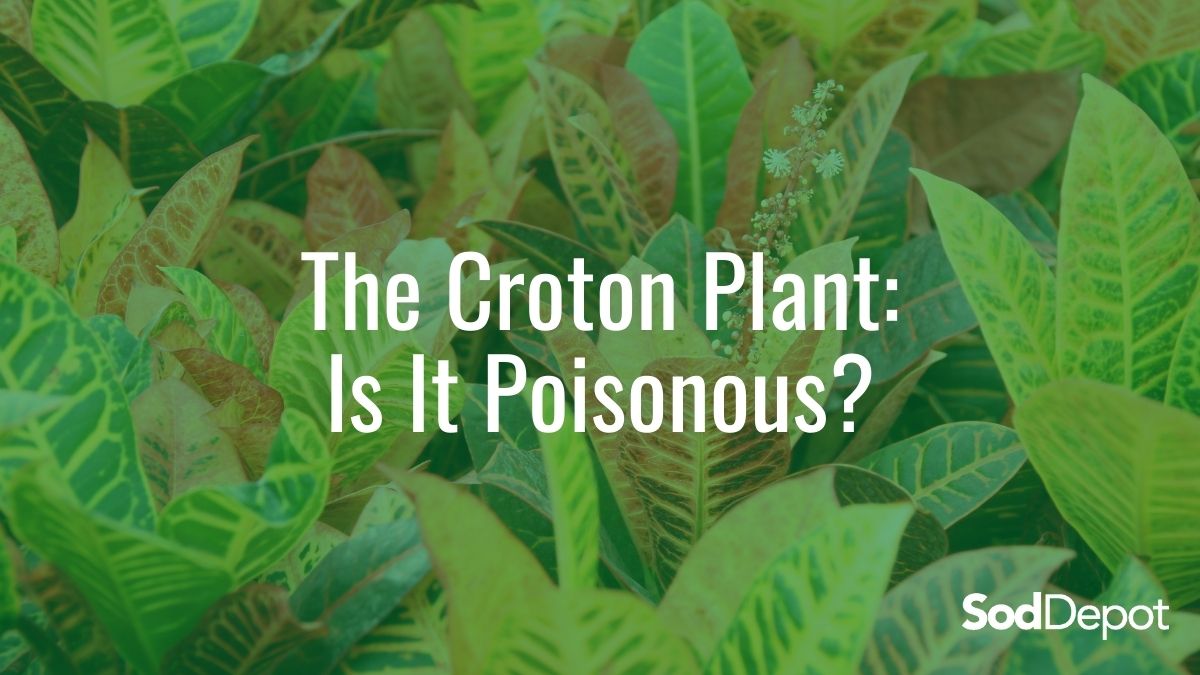Start your search and SAVE!! Dismiss
The Croton Plant: Is It Poisonous?

The croton plant is a beautiful addition to any garden, but many people are unsure if it is poisonous. In this blog post, we will explore the toxicity of the croton plant and answer the question once and for all!
The croton plant is a member of the Euphorbiaceae family and is native to Southeast Asia. The plant can grow up to six feet tall and has large, glossy leaves that are often variegated in color. The croton plant is a popular houseplant because of its vibrant appearance, but many people are concerned about its toxicity.
Is The Croton Plant Poisonous?
Yes, the croton plant is poisonous. All parts of the plant are poisonous if ingested, and the sap can cause skin irritation.
If you or someone you know ingests any part of the croton plant, it is important to seek medical attention immediately.
While the croton plant is not lethal, it can cause serious health problems if ingested.
Is The Croton Plant Toxic to Animals?
Yes, the croton plant is toxic to animals. If your pet ingests any part of the plant, it is important to seek veterinary attention immediately. The sap of the plant can also cause skin irritation in animals.
What Part of the Croton Plant is Poisonous?
All parts of the Croton are poisonous, including the leaves, stems, roots, and blossoms. The sap is especially dangerous because it may cause skin rashes.If you come into contact with the sap, it is important to wash the area immediately with soap and water.
The milky sap produced in the leaves and stems is poisonous, so avoid it. The white sap, when touched, causes severe skin irritation. Although the plant is unpalatable, its color may attract your infant or pet.
What Are The Symptoms of Croton Poisoning?
Symptoms of croton poisoning include nausea, vomiting, and diarrhea. If the plant is ingested in large quantities, it can also cause liver and kidney damage.
While the symptoms are not always fatal, Croton plant ingestion results in a burning sensation in the mouth. Pets may drool excessively and paw at their mouths as an indication of discomfort.
Dermatitis is another possible sign of croton poisoning. It can also cause staining and painful irritation of the skin, also known as dermatitis.
If you suspect that someone has ingested the croton plant, it is important to seek medical attention immediately.
How Should You Handle a Croton Plant To Protect Yourself?
The best way to protect yourself from the croton plant is to wear gloves when handling it. If you come into contact with the sap, be sure to wash the area immediately with soap and water.
It is also important to keep the plant out of reach of children and pets. If ingested, the croton plant can cause serious health problems.
In conclusion, the croton plant is a beautiful addition to your home, but you need to be careful where it is placed and who is around it.
If you have any further questions about the croton plant, please feel free to contact us!
© Sod Depot – All Rights Reserved

